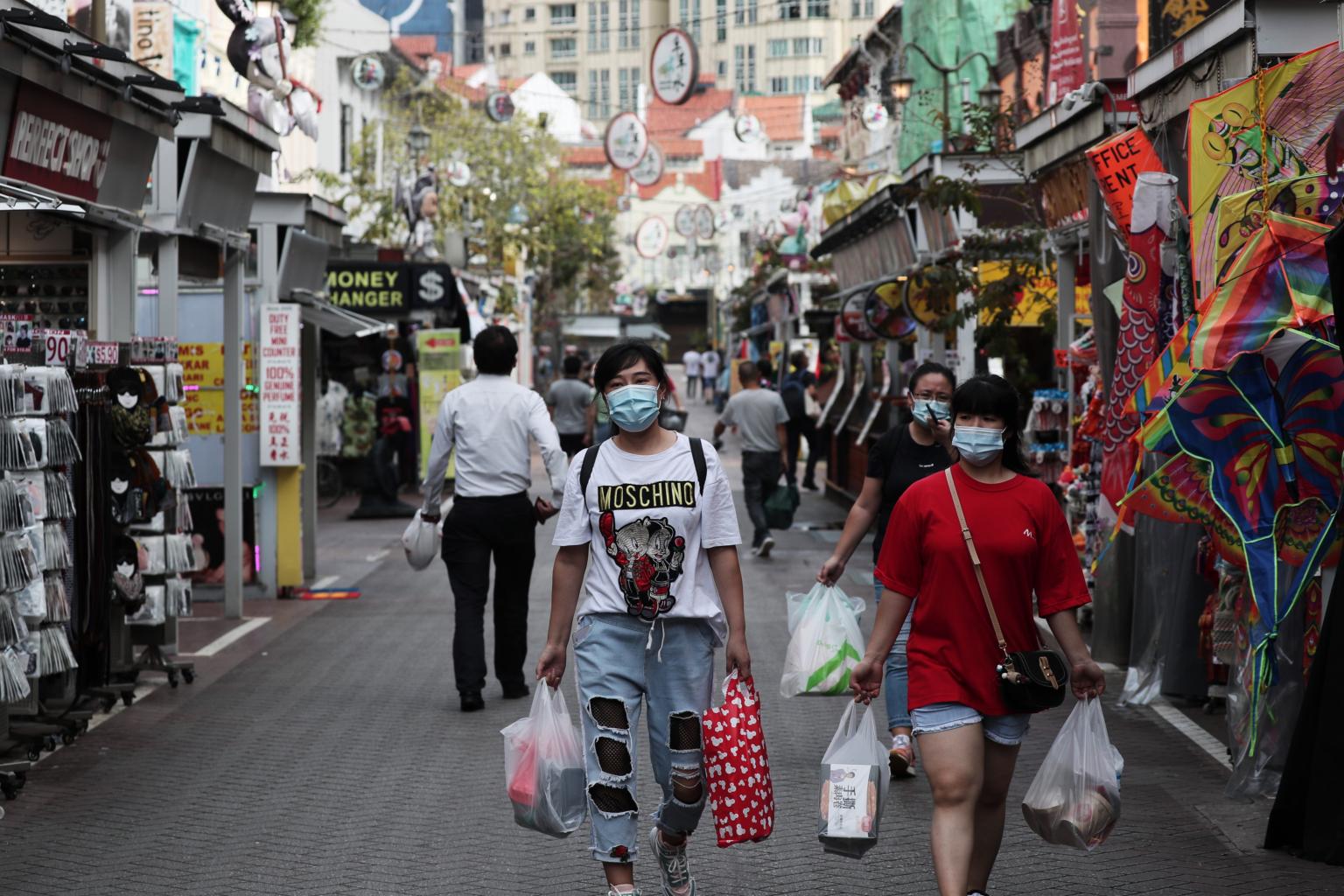Half of Singapore consumers prefer to shop local to help firms hit by Covid-19: Survey
Sign up now: Get ST's newsletters delivered to your inbox

The results of the study offered "welcome relief" to businesses under pressure.
ST PHOTO: KELVIN CHNG
Follow topic:
SINGAPORE (THE BUSINESS TIMES) - Around half of Singapore consumers prefer to shop at local businesses to help them recover from the business fallout of Covid-19, according to a study of Asean consumer sentiment released on Thursday (Dec 3) by United Overseas Bank.
UOB head of group business banking Lawrence Loh said the results of the study, which polled 1,000 respondents in Singapore, offered "welcome relief" to businesses under pressure.
The bank noted that a survey of local businesses conducted by the Singapore Chinese Chamber of Commerce and Industry had shown that around half were reporting revenue declines of more than 50 per cent.
"After eight months of struggling to stay financially viable as Covid-19 restrictions hit bottom lines, every dollar directed to a local business can and does make a difference," Mr Loh said.
"Beyond the financial fillip, this spending choice creates a morale boost to the owners and employees of our local companies as they know people are standing by them."
The desire to spend locally is not unique to Singapore. UOB found in its survey that more than 60 per cent of consumers it polled across South-east Asia desired to stand in solidarity with their local businesses.
Indonesia had the highest proportion of consumers that were supportive, with 72 per cent of respondents saying they would go local. This was followed by Malaysia and Thailand, where 69 per cent and 67 per cent of respondents respectively said they would rally behind local businesses.
Consumers have also been spending more online, with UOB's card data showing e-commerce transactions growing 60 per cent from January to October this year, compared with the year-ago period.
UOB said it has helped local small retail businesses develop e-commerce capabilities through Shopmatic, an e-commerce solutions provider, which is part of its integrated suite of digital solutions.
One company that tapped UOB's platform and received support from local customers is plant and gardening supplies firm New Joo Guan Nursery.
"Like most businesses in Singapore, we were worried about our survivability throughout the circuit breaker period, as we were unable to receive any customer walk-ins," said Mr Teo Wee Pin, founder and director at the nursery.
The company registered a 20 per cent increase in online sales revenue from April to June, despite being unable to receive walk-in customers to its nursery.
"What took us by surprise next was the increase in overall sales driven exclusively through our online sales channels," Mr Teo said. "Learning from our experience during the circuit breaker, we will continue meeting the needs of our customers through both our physical and online sales channels throughout and beyond the Covid-19 pandemic."
Apart from local and online spending trends, the UOB study also found that around 43 per cent of Singapore consumers are making a deliberate decision to spend at businesses that use sustainable business practices.
Affluent consumers earning more than $10,000 a month and mass affluent consumers earning between $6,000 and $10,000 are more likely to support socially responsible businesses, UOB noted.
Across Asean, 54 per cent of consumers want to buy from brands that use sustainable business practices, the survey found.
"This social trend underscores even more clearly the importance of businesses operating responsibly and sustainably," Mr Loh said. "Those companies that incorporate responsible business practices into their strategy will benefit longer term."
The UOB Asean Consumer Sentiment Study was conducted in July this year to better understand consumers in a time of social and economic transformation. More than 3,500 respondents were interviewed across five countries - Singapore, Indonesia, Malaysia, Thailand and Vietnam.

